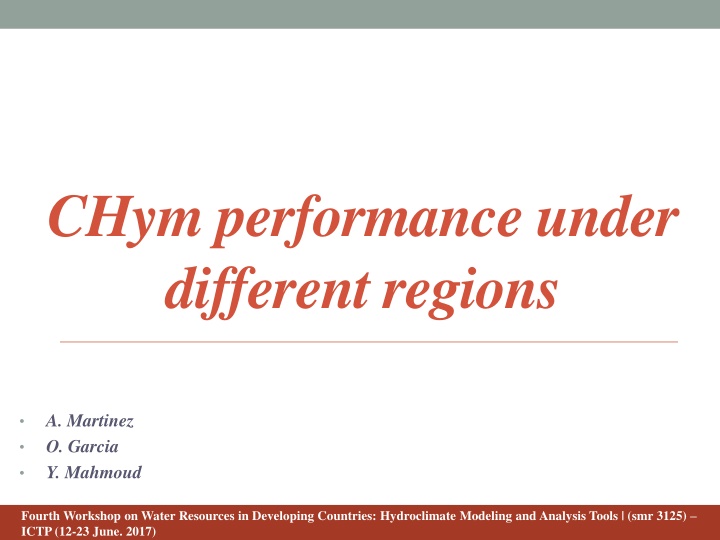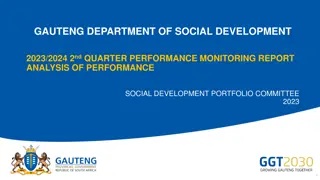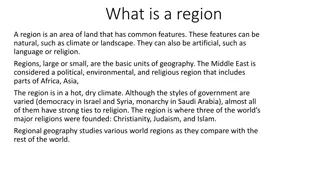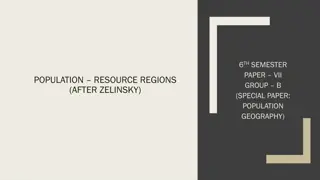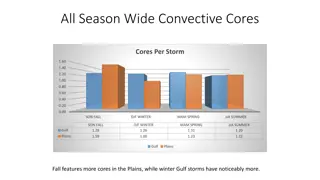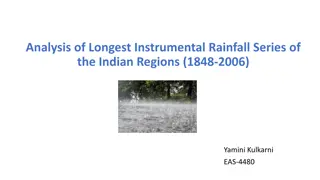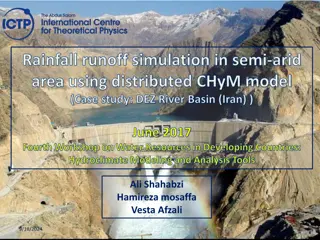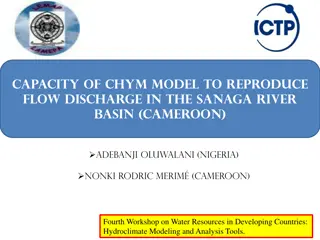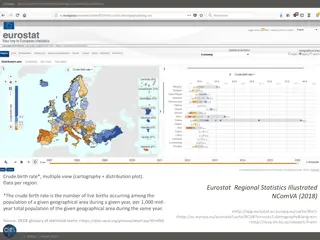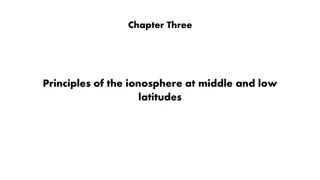Analysis of CHyM Model Performance in Different Regions
The study evaluates the performance of the CHyM model in humid and arid regions, specifically focusing on Tropical South America and Central America. Through analyzing simulated values, seasonal behavior, and response to ENSO phases, the study provides insights into water resource management in these regions. Case studies in Colombia and Guatemala showcase the model's accuracy in predicting rainfall and discharge patterns. The research highlights the importance of utilizing hydroclimate modeling tools for sustainable water resource management in developing countries.
Download Presentation

Please find below an Image/Link to download the presentation.
The content on the website is provided AS IS for your information and personal use only. It may not be sold, licensed, or shared on other websites without obtaining consent from the author.If you encounter any issues during the download, it is possible that the publisher has removed the file from their server.
You are allowed to download the files provided on this website for personal or commercial use, subject to the condition that they are used lawfully. All files are the property of their respective owners.
The content on the website is provided AS IS for your information and personal use only. It may not be sold, licensed, or shared on other websites without obtaining consent from the author.
E N D
Presentation Transcript
CHym performance under different regions A. Martinez O. Garcia Y. Mahmoud Fourth Workshop on Water Resources in Developing Countries: Hydroclimate Modeling and Analysis Tools | (smr 3125) ICTP (12-23 June. 2017)
Study Objectives 1. Test the CHym model performance with different datasets in humid and arid regions 1. Identify the typical simulated values and seasonal behavior 2. Look at the response of the simulated discharge and different ENSO phases
Atrato River: Country: Colombia Area : ~ 38000 km2. Length: ~ 750 km. In one of the rainiest places in the Americas. CHyM: Area : 34147.2 km2. DEM: NASA
Rainfall: TRMM Precipitation rarely exceeds 60 mm/day. Discharge peaks exceed 4000 m3/s. Notice the differences in the axes! Rainfall: ERAIN Precipitation can exceed 80 mm/day. Discharge can be as high as 30000 m3/s !.
Precipitation event started around 18UTC on the 12 th . Peak precipitation at 00UTC on the 13th. Peak discharge at 12UTC on the 14th (~ 36 hours after peak precip.).
Motagua Basin (Guatemala) Actual area 15 132 km2 CHyM calculated area 15 369 km2 Domain: Central America -91.50, 14.00 to -87.47, 16.68 250 x 150 cells (435 x 298.2 km2) Resolution 0.018 deg (1971 m) Years Simulated: 2000(strong La Ni a) 2013 (Neutral) 2015(strong El Ni o) Data Sources: HydroSheeds DEM TRMM Precipitation ERA dataset Temperatures Spin-up time of 1 month Default values for cpar!
The differences between years are clear when the daily discharges are compared.
The experiment tests the CHym hydrology model over Egypt as an Semi arid/Arid region with observation (ERA- Interim) and climate model Simulation (RegCM output) Nlon = 800 Nlat = 1200 Slat = 28.4 Slon = 22.0 Dij = 0.0009 Demf = Nasa Chym_sdate= 2009010100 to 2011010100 Chym_dsource = EIN75 & AFR44-MPI- rcp8.5 Chym Setting Area: 1,010,407.87 km2 Climate Classification : Dry climate Annual Prec. : 250-350 mm/year
ERA-Interim Results Total Rainfall in Jan. Rainfall 18 Jan.2010 Discharge in Jan. Discharge 18 Jan.2010
RegCM (MPI-ESM-MR of rcp8.5) Results Discharge Jan.2010 Rainfall Jan.2010
Cont. RegCM Results Evap. Jan.2010 of ERA Evap. Jan.2010 of RegCM
